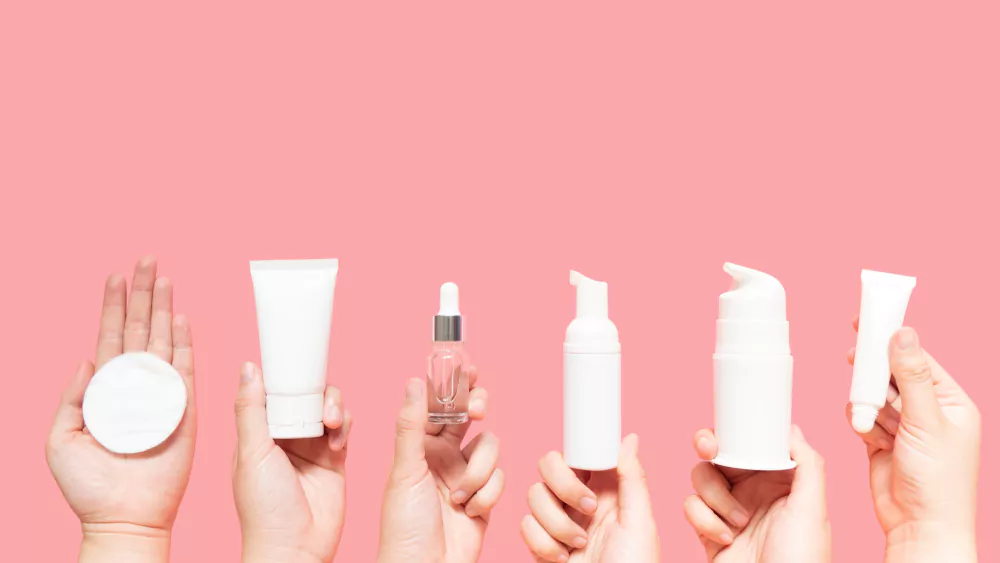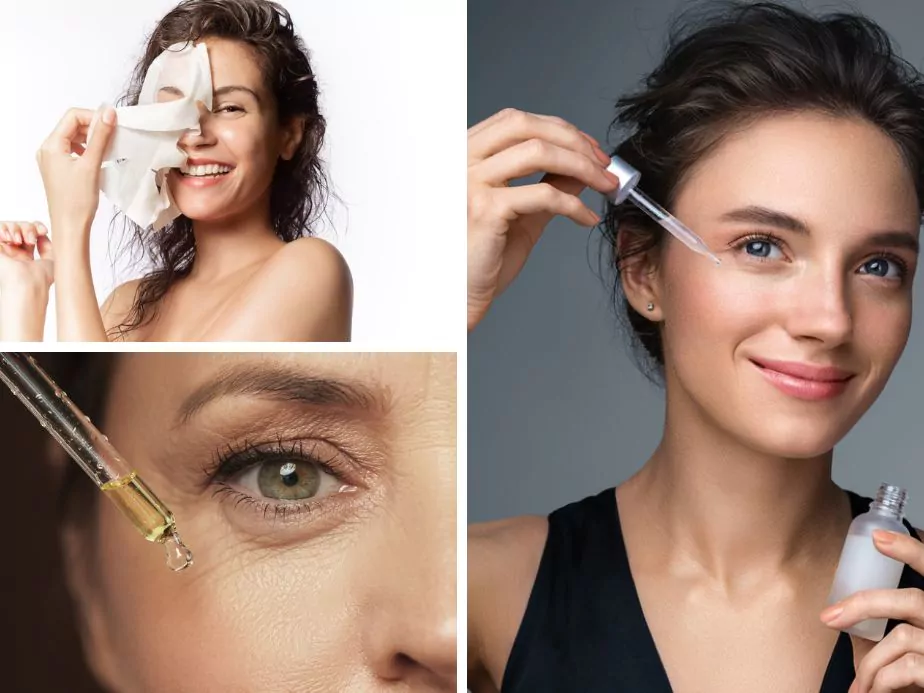How to Achieve Porcelain Skin at Home?

Porcelain skin, also known as glass skin, is characterized by a smooth, clear, and luminous complexion. Many people aspire to achieve this look, as it exudes a sense of youthfulness and radiance. While genetics play a role in the quality of our skin, there are steps you can take to improve your complexion and get closer to that porcelain-like appearance. In this comprehensive guide, we will discuss a range of skincare practices, treatments, and lifestyle changes that you can implement at home to achieve that coveted porcelain skin.
1 Establish a consistent skincare routine

A consistent skincare routine is a foundation for achieving porcelain skin. It is essential to cleanse, exfoliate, moisturise, and protect your skin on a daily basis.
- Cleansing: Cleansing your skin twice a day is crucial for removing dirt, excess oil, and makeup. Choose a gentle cleanser that suits your skin type, and be sure to massage it onto your face using circular motions. Rinse thoroughly with lukewarm water and pat your skin dry with a clean towel.
- Exfoliating: Exfoliation helps remove dead skin cells, revealing fresh and radiant skin underneath. Aim to exfoliate 1-3 times a week, depending on your skin type and sensitivity. Chemical exfoliants, such as alpha-hydroxy acids (AHAs) and beta-hydroxy acids (BHAs), are great options for gentle exfoliation.
- Moisturizing: Proper hydration is essential for maintaining a smooth and plump complexion. Choose a moisturiser that suits your skin type and apply it daily after cleansing and exfoliating. Ingredients like hyaluronic acid, ceramides, and glycerine are excellent for maintaining skin hydration.
- Sun protection: Daily use of sunscreen is crucial for preventing sun damage, which can cause premature ageing, dark spots, and an uneven complexion. Opt for a broad-spectrum sunscreen with an SPF of 30 or higher and apply it generously to your face and neck.
2 Incorporate targeted treatments

In addition to the basics, incorporating targeted treatments into your skincare routine can help address specific concerns and improve the overall appearance of your skin.
- Serums: Serums are lightweight, fast-absorbing liquids that contain a high concentration of active ingredients. They can target a variety of skin concerns, such as hyperpigmentation, redness, or dullness. Look for serums containing ingredients like vitamin C, niacinamide, or retinol, which can help brighten, even out skin tone, and boost collagen production.
- Facial oils: Oils can be beneficial for maintaining skin hydration and promoting a healthy skin barrier. They can also provide a natural glow and work well for all skin types. Consider adding a few drops of facial oil, like rosehip or jojoba, to your moisturiser or applying it directly to your skin after serums.
- Masks: Face masks can be used 1-2 times a week to provide a deep treatment for your skin. Clay masks can help detoxify and refine pores, while hydrating sheet masks can provide a boost of moisture and nutrients.
3 Optimise your lifestyle
Your lifestyle habits can have a significant impact on the health and appearance of your skin. Implementing the following changes can help you achieve porcelain skin:
Hydration: Drinking plenty of water is essential for maintaining healthy, glowing skin. Aim to drink at least eight glasses of water a day to ensure your skin stays hydrated from the inside out.
Diet: A diet rich in fruits, vegetables, whole grains, and lean proteins can provide your skin with the nutrients it needs to stay healthy and radiant. Incorporate foods rich in antioxidants, such as berries, leafy greens, and nuts, to help combat free radicals and support collagen production. Additionally, avoid excessive sugar and processed foods, as they can contribute to inflammation and skin ageing.
Sleep: Aim for at least 7-8 hours of sleep per night, as this is when your skin repairs itself. Establish a relaxing bedtime routine and try to maintain a consistent sleep schedule to support your skin’s natural regeneration process.
Stress management: Chronic stress can have a negative impact on your skin, causing issues like breakouts, dullness, and premature ageing. Incorporate stress-reducing activities into your daily routine, such as yoga, meditation, or deep breathing exercises, to support overall skin health.
Exercise: Regular exercise can improve blood circulation, delivering oxygen and nutrients to your skin. This can help promote a healthy, glowing complexion. Aim for at least 30 minutes of moderate exercise most days of the week.
4 Embrace gentle, non-invasive treatments

While professional treatments like chemical peels and microdermabrasion can be effective for improving skin texture and tone, there are also gentler, non-invasive options you can try at home.
Facial massage: Regular facial massages can help increase blood circulation, promote lymphatic drainage, and relieve tension in the facial muscles. Use your fingers or a facial roller to gently massage your face in upward and outward motions, focusing on areas where you may hold tension, like the jawline and temples.
LED light therapy: At-home LED light therapy devices emit specific wavelengths of light that can help improve various skin concerns, such as redness, acne, and uneven skin tone. These devices are typically safe and easy to use, making them an excellent option for those seeking a non-invasive treatment to enhance their complexion.
Microcurrent devices: Microcurrent devices use low-level electrical currents to stimulate facial muscles and promote collagen production. Regular use of an at-home microcurrent device can help improve skin elasticity and reduce the appearance of fine lines and wrinkles.
5 Adopt a minimalist makeup approach
While makeup can help enhance your natural beauty, it’s important not to rely on it too heavily when aiming for porcelain skin. Overusing makeup can clog pores and lead to breakouts. Instead, opt for a minimalistic approach:
- Choose lightweight foundations or tinted moisturisers that allow your skin to breathe and still show off your natural complexion.
- Use a colour-correcting concealer to cover any redness or hyperpigmentation, but be sure not to overapply.
- Emphasize your natural features with a soft, neutral eyeshadow, a touch of mascara, and a subtle lip colour.
- Finish your makeup routine with a light dusting of translucent powder to set everything in place without creating a cakey appearance.
6 Wrapping Up
Achieving porcelain skin at home is possible with a consistent and comprehensive approach. By following a tailored skincare routine, incorporating targeted treatments, making healthy lifestyle choices, and embracing gentle, non-invasive treatments, you can work towards a smoother, clearer, and more radiant complexion. Remember that results may take time, and consistency is key. Be patient and kind to yourself, and soon enough, you’ll be on your way to enjoying that coveted porcelain skin.
Community Q&A
About This Article
This article has been viewed 493 times.



